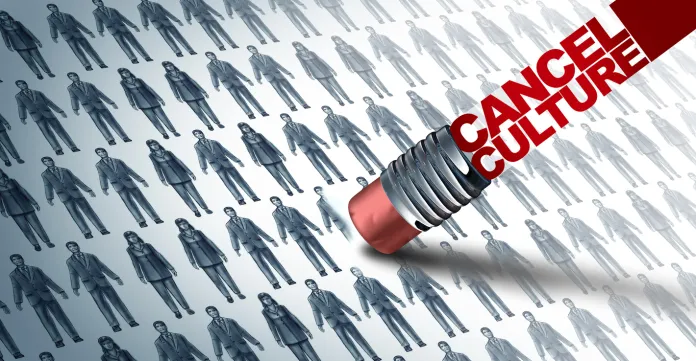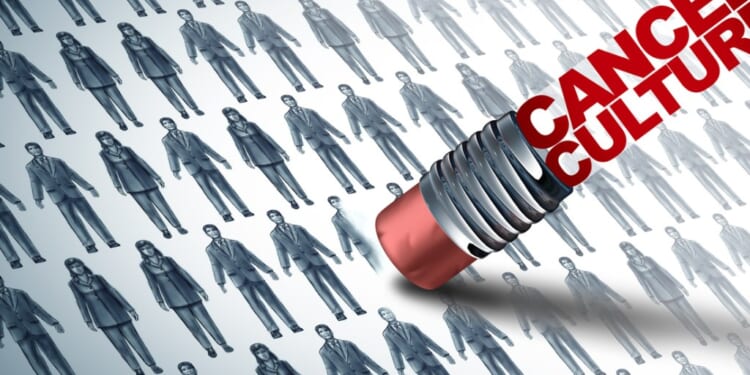Since Donald Trump’s return to office at the beginning of 2025, much has been made of the idea of the rise of a “woke Right.” Now that they have the governmental — and perhaps even cultural — whip hand, right-wingers are now indulging in the same sorts of speech policing behaviors that came to characterize the Left in the decade or so before the 2024 election. This has most recently come up as a result of high-profile terminations (or calls for termination) in the wake of Charlie Kirk’s killing. The specific allegation is that, after years of complaining about left-wing “cancel culture,” those on the political Right are indulging in their own version of it now that they have the opportunity.
Many have now responded with mutual accusations of hypocrisy, while others smugly declare themselves the last independent-minded centrists still free of ideological baggage. But is the underlying picture accurate?
To answer that, we must turn to the great philosopher, Sideshow Bob. In a very funny scene in The Simpsons, he complains from a prison cell about what he considers his unjust sentencing: “Attempted murder! Now, honestly, what is that? Do they give a Nobel prize for attempted chemistry?!”
The false parallel he draws is inherently comic, both because it is an expression of naked self-interest and because Sideshow Bob is an obvious sociopath. Some things, after all, are good or neutral (chemistry). Others are bad (murder). Such things have to be judged on a case-by-case basis, as important as it is for regulations themselves to be content-neutral. The fact that “both sides” seek punishment and censure for certain expressions is trivially true. It is certainly the case that, too often, the only relevant question is: right or left? “Who/whom,” after all, remains for many the sole guiding political principle.

But the fact that many people think in purely partisan terms is not a sufficient reason to assume that all disputes over expression must be adjudicated accordingly, or that fairness demands suspension of all judgment. We, after all, express ideas to one another using words, but this does not mean that if we are committed to principles of free speech, we commit not to render intellectual judgment about ideas.
What distinguished the kinds of cases that originally gave rise to the term “cancel culture” was the haphazard way in which once benign things were recategorized as malign. These included: Dr. Seuss books, a Princeton professor criticizing demonstrations, sitcom episodes, Christmas songs, an astrophysicist who wore a tacky shirt, legal political donations, and Mr. Potatohead. One could go on. What links these otherwise dissimilar cases, besides their silliness, is that they all involved conventional things. They became controversial only at the moment of controversy.
The problem with these instances isn’t that the wrong “side” was penalized, nor that penalties were imposed at all. It’s that perfectly harmless or even legitimate expression was being punished. Some cases were sheer hysteria, but others represented an attempt to do politics by other means. The accusers in such cases sought to leverage the mechanisms of social discipline in order to impose their preferences upon political society at large. This was an inherently bad-faith move, as they could always insist that in punishing certain behaviors, they were just upholding social norms without admitting that, in fact, they were applying punishment in order to establish new norms.
Consequently, that period is not best understood in terms of speech restrictions, but rather the novel application of arbitrary standards of conduct to certain people, combined with the suspension or even inversion of standards for others. This became clear after, e.g., Oct. 7, when some of the same people who had otherwise displayed exquisite sensitivities concerning the most minute social transgressions had no qualms about celebrating terrible violence done to those outside the circle of empathy.
As it happens, one such person, now-former Washington Post opinion editor Karen Attiah, recently suffered a reversal of fortune along these lines, and her case attracted much attention, including from one former U.S. president. Hers is an instructive case. Looking back, it is evident that much of her extreme behavior was a feature rather than a bug. It was not a case of accepting occasional rhetorical excesses, in the way that one might overlook a brilliant reporter’s heavy drinking. Her “authentic” political anger was what she brought to the Post, and during the period of her employment, it was in fact what the Post — along with many other institutions — was looking for. It is, then, somewhat unfair that as the political culture undergoes a course correction, those same attributes have come to be seen as liabilities rather than assets.
But to speak plainly: The Washington Post is the most important newspaper in the capital city of the world’s most powerful country. It was bad for it to confer its prestige on writers who pursued racial vendettas and consistently used “white” as a pejorative — all the more so in a multiracial country like our own. By the same token, it is bad for major universities to employ professors who primarily use their positions as vehicles for political activism, and whose public outreach consistently involves gross profanity and celebrations of (or calls for) violence.
These things are bad not because they might personally offend me (I am by nature incapable of taking offense) or some larger group. Nor are they bad because of some amorphous “harm” they may cause, and certainly not because they comprise “hate speech.” They are bad because they are ugly and stupid expressions that — owing to the eminence of their associated institutions — contribute to making our society uglier and stupider. And insofar as we care about the health of important institutions such as media organs, universities, and governmental organizations (and we should), it is clear that those institutions favoring such expressions due to political trends was an indication of corruption.
The point isn’t revenge or the exaction of poundages of flesh, as in the loathsome social media command: “Let’s make him/her famous.” Even if it were not contemptible, it is hardly productive to arrange the firing of an Outback Steakhouse waitress or Home Depot cashier, regardless of what they said. More broadly, the impulse to “cancel” — i.e., socially and financially harm someone whose public expression upset you — is a bad one. It’s petty, it’s vindictive, it’s damaging to the soul. “Do not join mobs” is pretty much a universally applicable maxim.
LEPORE GRASP OF THE CONSTITUTION
The real point is that we cannot avoid making judgments, especially when it comes to our most important institutions, nor prior to the annī horribilēs that began a decade ago did we fail to do so. It is perfectly sensible, then, to be concerned with upholding the standards of intelligent and reasoned discussion already implied by the purposes of the institutions in question. To say instead that we should settle for some sort of political détente between the stupidities of the Right, Left, or center is to admit that those institutions can no longer serve their intended purposes at all.
Incidentally, in that same Simpsons episode, Sideshow Bob manages to persuade enough people with his spurious arguments that he ends up going free, at which point he immediately returns to a life of crime. There’s probably a lesson in there somewhere.
David Polansky is a Toronto-based writer. Find him at davidpolansky.substack.com.
















